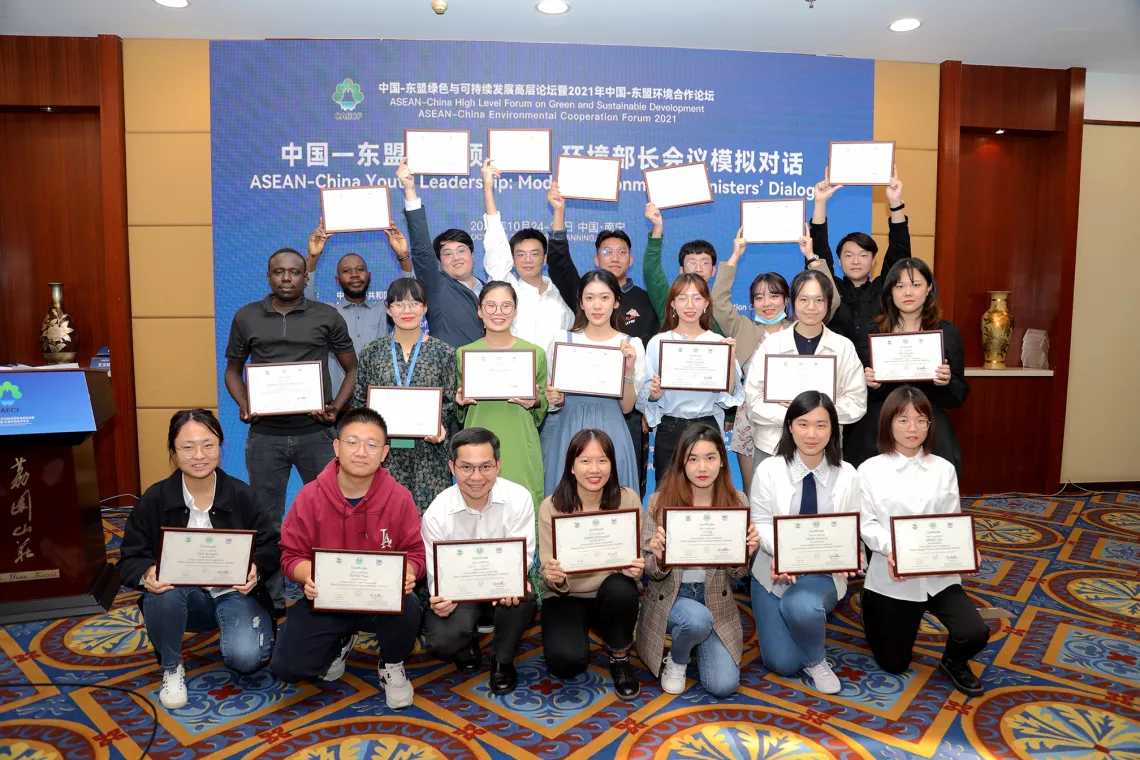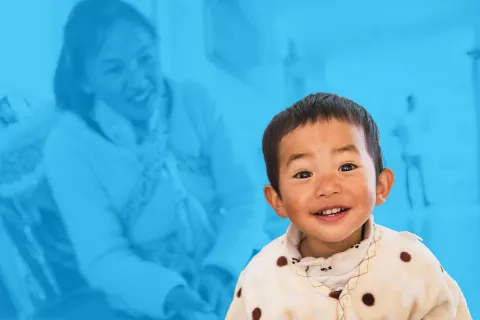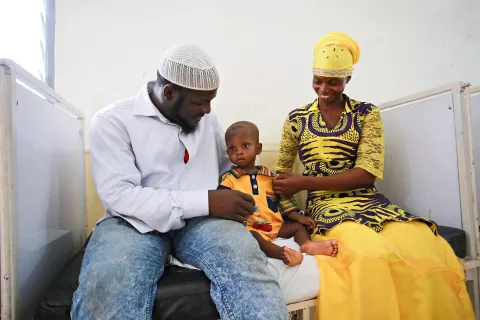Our future is at stake: young people share their solutions to climate change
UNICEF with partners co-organized a multiday forum to hear young people’s solutions to the climate crisis.

- Available in:
- 中文
- English
The climate crisis is a child rights crisis, and UNICEF is working to ensure that children and young people can participate in creating the solutions to climate change. UNICEF together with the Foreign Environmental Cooperation Center of the Ministry of Ecology and Environment, and the World Wildlife Fund (WWF) co-hosted a multiday event for students aged 18-22 that ran in parallel to the ASEAN-China Environmental Cooperation Forum from 24 - 26 October in Nanning, Guangxi Zhuang Autonomous Region. The youth event was titled: ‘Our Common Agenda: China-ASEAN Youth Leadership: Simulated Environmental Ministers’ Dialogue & Asia-Africa Youth Dialogue: From COP15 to COP26 – Synergy on Biodiversity and Climate Change.’
In opening remarks on 25 October at the ASEAN-China Youth Leadership dialogue UNICEF Representative to China Ms. Cynthia McCaffrey said: “Young people like you are playing a key role in addressing climate change, by encouraging environmentally sustainable lifestyles. You are creating solutions and setting examples for your communities.”
On 26 October, at the opening of Asia-Africa Youth Dialogue, UNICEF Representative to Senegal Ms. Silvia Danailov said, “Not only do climate and environmental hazards negatively affect children’s access to key essential services, but children’s lack of access to key essential services also reduces their resiliency and adaptive capacity, further increasing their vulnerability to climate and environmental hazards.”
This youth event enabled young people from Asia and Africa to understand more about global and regional climate and biodiversity ambitions. It also provided an opportunity for students from Asian and African countries (Afghanistan, Algeria, Bangladesh, Benin, Brunei Darussalam, Burundi, China, Ethiopia, Gambia, Kenya, Malaysia, Nigeria, Oman, Rwanda, Sierra Leone, Singapore, Tanzania, Thailand, Vietnam, and Zambia) to exchange experiences and insights in climate actions that focus on children and adolescents.
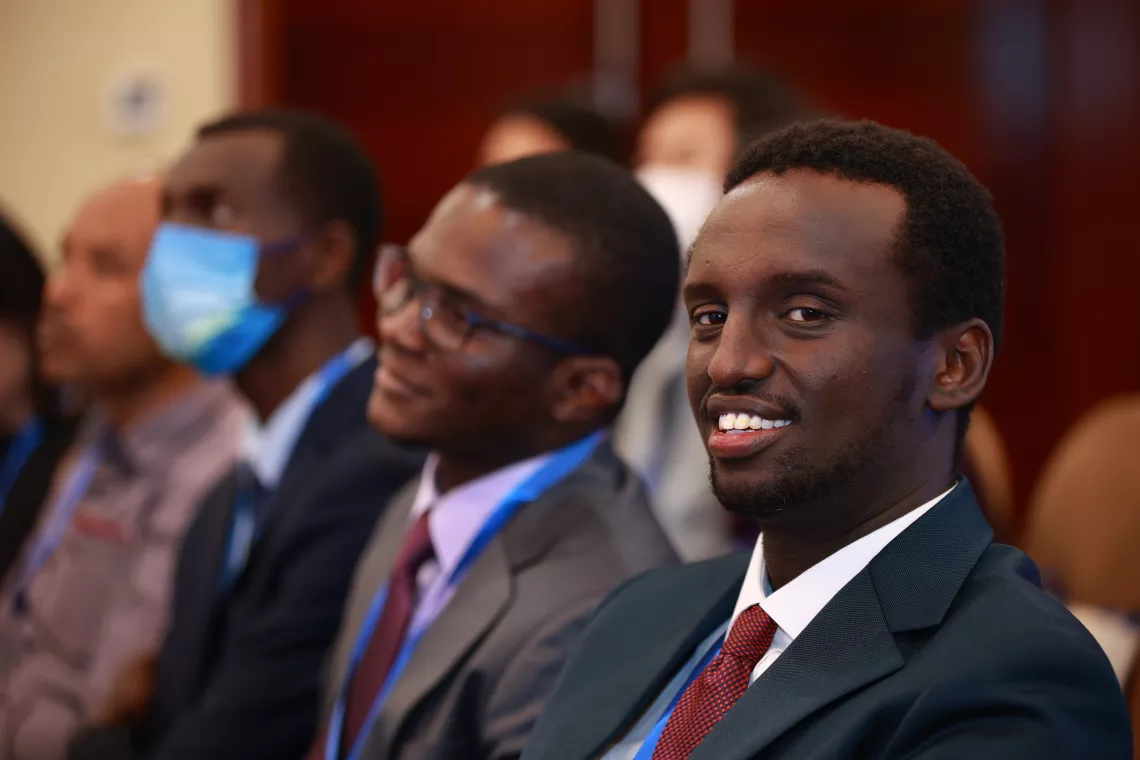
The event included:
On 24 October, The ASEAN-China Youth Leadership event explored topics including nationally determined contributions, green recovery and climate change, and nature-based solutions. After remarks by experts from international organizations including UNICEF, 100 students from seven countries studying a range of disciplines participated in the discussion online and offline.
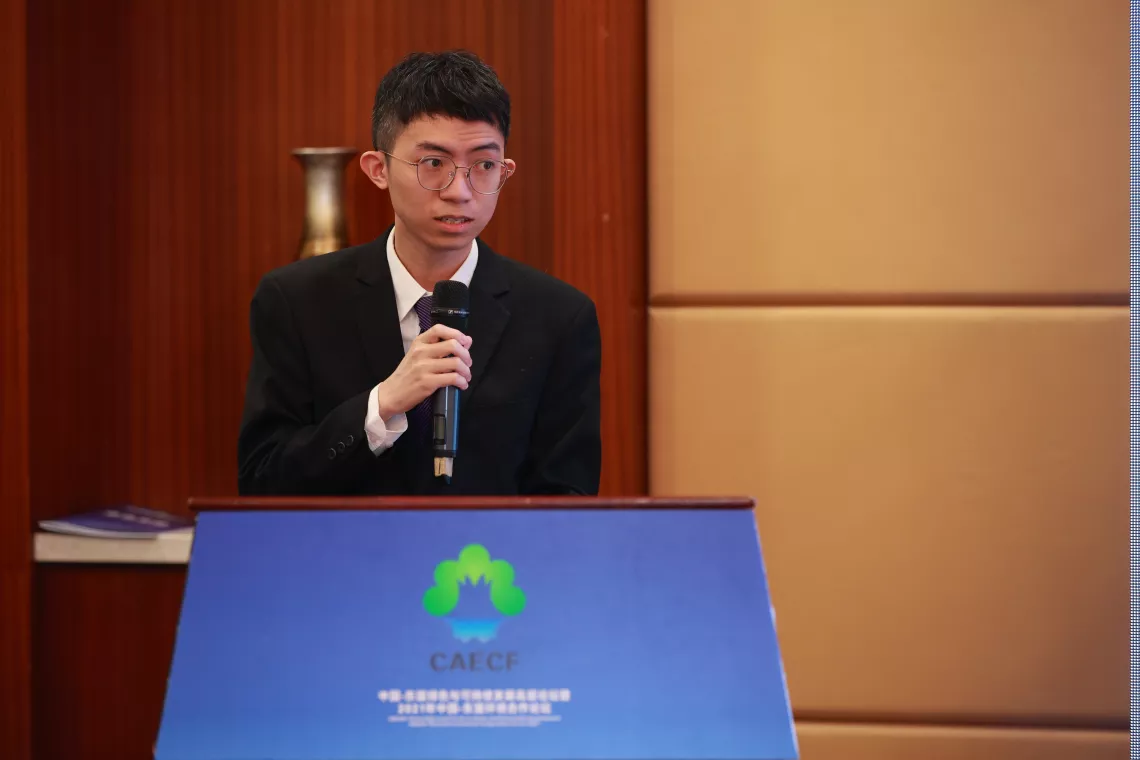
On 25 October, representatives from the ASEAN Foundation, the Ministry of Development of Brunei, UNICEF, and WWF delivered opening remarks for the forum. Based on the previous day’s discussion, youth representatives presented a pledge at the parallel forum of the ASEAN-China Roundtable Dialogue on Climate Investment and Financing.
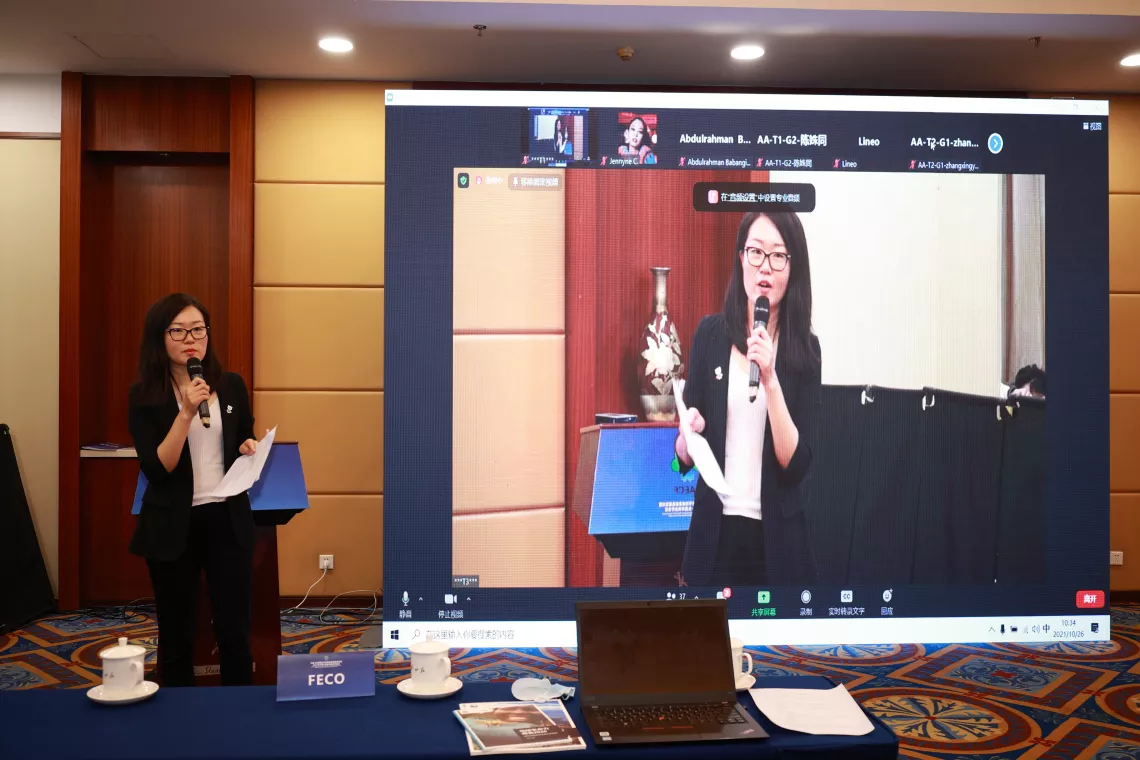
On 26 October, representatives from the China Ministry of Foreign Affairs, ASEAN Foundation, UNDP Ethiopia and UNICEF Senegal delivered opening remarks for Asia-Africa Youth Dialogue. Young people discussed nature-based solutions, green finance to support the achievement of the Sustainable Development Goals in Africa and Asia, and safeguarding the rights of women and children in regional action on climate change and biodiversity.
The participants in the event presented two Youth Pledges respectively at the parallel forum of ‘ASEAN-China Roundtable Dialogue on Climate Investment and Financing: Climate Resilience and Green and Low-Carbon Development’ and ‘Nature-based Solutions: ASEAN-China Mangrove Conservation Cooperation Partnership and Sustainable Development Practice’. Youth representatives from Laos, Ethiopia and China read the pledges. The youth representatives are calling for ASEAN-China and Africa-China environmental cooperation to continue to contribute to the 2030 Agenda for sustainable development by fostering a low-carbon, resilient, and inclusive post-pandemic recovery; deeper, active and gender-responsive; climate change adaptation planning for sustainable development; greater capacity of young people in ASEAN, Africa and China to mitigate and adapt to climate change with more environmentally friendly lifestyle and consumer choices; and, for young people to come up with innovative solutions to reduce emissions and deal with environmental degradation and pollution.
